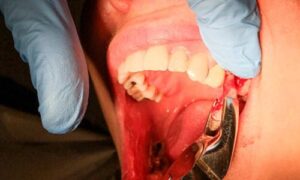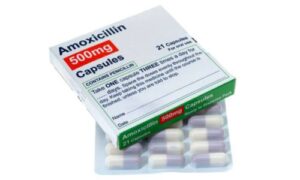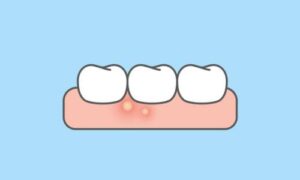Regarding oral health, our front teeth often take the spotlight. They’re the stars of our smiles but also vulnerable to damage, leading to what we might call a “dental pothole.” In this article, we’ll explore what a dental pothole is, why it’s important to avoid it, and how to protect your precious front teeth.
Understanding the Dental Pothole
Imagine driving down the road and hitting a deep pothole that jars your car. Now, picture the same experience happening to your teeth—that’s what a dental pothole feels like. It’s a term that describes damage, such as chips, cracks, or fractures, on the front teeth. Just like a pothole on the road, a dental pothole can be a nuisance and cause discomfort.
Why Protect Your Front Teeth?
Your front teeth play crucial roles in your daily life. They help you bite into food, speak, and, of course, smile confidently. Damaging them can not only affect your appearance but also impact your ability to eat and communicate comfortably. Repairing damaged front teeth can be costly and time-consuming, so prevention is key.
What Causes Dental Potholes in Front Teeth?
Several factors can contribute to the formation of dental potholes on your front teeth. Here are the most common culprits:
- Acid erosion occurs when acidic foods and drinks, such as soda, citrus fruits, or sports drinks, remove the enamel. It is especially concerning if you frequently sip acidic beverages or have a condition like acid reflux.
- Tooth decay occurs when plaque, a sticky film of bacteria, builds up on teeth. The bacteria feed on sugars in food, producing acids that erode the enamel.
- Bruxism (teeth grinding): Grinding or clenching your teeth at night can put excessive pressure on your front teeth, leading to cracks and chipping, which can then develop into potholes.
- Improper brushing: Brushing too hard or using a harsh toothbrush can damage the enamel, making it more susceptible to potholes.
- Using teeth for unintended purposes: Using your front teeth to open bottles, chew on hard objects like fingernails, or tear food can cause chips and cracks that can become potholes.
How Do Dentists Treat Dental Potholes?
The treatment for a dental pothole depends on its severity. Here’s what your dentist might recommend:
- Fluoride treatment: If the pothole is very shallow, your dentist might recommend a professional fluoride treatment to strengthen the enamel and prevent further erosion.
- Dental bonding: For slightly deeper potholes, your dentist can use a tooth-colored resin to fill the cavity and restore the tooth’s shape and function.
- Dental fillings: A filling will be needed if the pothole is moderate in size and reaches the dentin layer. This involves removing the decayed or eroded material and filling the cavity with composite resin or another material.
- Crowns: A crown might be necessary in severe cases where the large pothole weakens the tooth. A crown is a cap that fits over the entire tooth, restoring its strength, shape, and appearance.
According to the National Institute of Dental and Craniofacial Research, adults between 20 and 64 have an average of 25 teeth. This implies that some adults lose front teeth during this age range.
How to Avoid the Dental Pothole
- Practice Good Oral Hygiene: Regular brushing and flossing are your first defense against dental problems. Make sure to brush your front teeth gently yet thoroughly, reaching all surfaces to remove plaque and food particles.
- Use Protective Gear: If you participate in sports or activities that pose a risk of facial injury, such as football or biking, consider wearing a mouthguard. A custom-fitted mouthguard can cushion your front teeth against impacts, reducing the risk of fractures or loss.
- Avoid Bad Habits: Certain habits can increase the likelihood of dental potholes. Avoid biting hard objects like pens or ice cubes, as this can put undue pressure on your front teeth and lead to damage. Similarly, refrain from using your teeth as tools to open packages or bottles.
- Attend Regular Dental Check-ups: Routine dental visits allow your dentist to monitor the health of your teeth and address any issues early on. Professional cleanings and exams can help prevent dental potholes by identifying and treating potential problems before they worsen.
- Consider Protective Treatments: Sometimes, your dentist may recommend additional protective measures to safeguard your front teeth. For example, dental sealants can be applied to the chewing surfaces of your molars to prevent decay, while dental bonding or veneers can repair minor imperfections on your front teeth.
- Maintain a Balanced Diet: A nutritious diet rich in calcium, vitamin D, and other essential nutrients benefits your dental health. These nutrients help strengthen your teeth and support gum health, reducing the risk of dental potholes and other oral problems.
Conclusion
Your front teeth are essential for both function and aesthetics, so taking good care of them is crucial. By practicing good oral hygiene, using protective gear, avoiding harmful habits, attending regular dental check-ups, considering protective treatments, and maintaining a balanced diet, you can significantly reduce the risk of encountering the dreaded dental pothole. Remember, prevention is always better than cure when preserving your smile!
Dental Pothole FAQs: Your Front Teeth and Those Pesky Pits
Q: Are dental potholes the same as cavities?
A: Not exactly. Cavities are a general term for tooth decay affecting any part of your tooth. Dental potholes are a specific type of cavity that forms on the surface of your front teeth, often appearing as a small indentation.
Q: My pothole doesn’t hurt. Should I still get it treated?
A: Even painless potholes pose a risk. The exposed dentin is more susceptible to decay, and the pothole can grow deeper, eventually causing pain and requiring more extensive treatment. Early intervention is always best.
Q: I love my morning OJ, but is it giving me potholes?
A: Citrus fruits are acidic, which can contribute to enamel erosion. However, moderation is key. Enjoy your OJ, but rinse your mouth with water afterward to neutralize the acid.
Q: I brush hard because I want my teeth squeaky clean. Is that bad?
A: Brushing too hard can wear down your enamel. Use a gentle brushing technique with a soft-bristled brush for optimal cleaning without damaging your teeth.
Q: I clench my jaw sometimes; could that be causing potholes?
A: Teeth grinding and clenching (bruxism) can contribute to dental potholes. If you suspect you grind your teeth, talk to your dentist about getting a mouthguard to protect your teeth at night.
Q: If I get a filling for a pothole, will it last forever?
A: Like most dental work, fillings can last many years with proper care. However, they can chip or wear down over time. Maintaining good oral hygiene and regular dental visits will help extend the life of your fillings.
Q: I’m worried about the cost of fixing dental potholes. What are my options?
A: Early detection and treatment are key to keeping costs down. Talk to your dentist about treatment options and payment plans. Many dental insurance plans cover some or all of the expenses associated with fillings and other restorative procedures.














